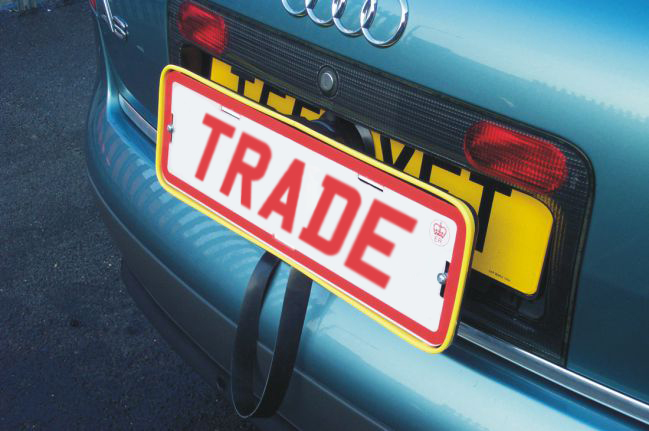
With sales of new cars falling by 97 percent at the height of the COVID-19 lockdown in April and reports of mass redundancies and closures from UK based manufacturers, it would seem to the casual onlooker that the future for cars sales in the UK is dire. But panic not, just yet. On the flip side, the increase in used vehicle sales is a rare shining episode in this bleak landscape for those in the British motor trade.
Business is booming in the used car sector and for those of you in this lucrative market it pays to look after your trade plates when selling and transporting used vehicles to customers.
Online marketplace Auto Trader reported a 29 percent increase in its site in June with 64 million views compared with the same time last year, whilst used car marketer Motorway.co.uk, reported sales of as much as £1.6m a day since it restarted sales in May. The industry is hoping that people avoiding public transport will maintain the demand for used cars worth less than £5,000.
With social distancing, many online used car buyers are opting for vehicle delivery to their home location which means that if you are in the business of used car sales, you need to be aware of the legislation regarding trade plates and have enough motor trade insurance provision to protect both you and the would-be customer during the transaction.
Motor Trade Plates
According to the DVLA if, you’re a motor trader or vehicle tester, having trade licence plates will save you time and money as it allows you to carry out your business without registering and taxing every vehicle temporarily in your possession.
The DVLA defines a motor trader as:
- a manufacturer or repairer of vehicles including those involved in collecting and delivering of vehicles
- engaged in no other activities except as a vehicle manufacturer or repairer
- you are a hire, leasing and finance company who collects and delivers vehicles
- a vehicle valeting and accessory fitting business
Trade plates are used for vehicles for testing, trialling, demonstrating, delivering or dismantling. Brand new or second-hand vehicles already registered to you must be taxed and trade plates can’t be used on unroadworthy vehicles.
All vehicles must be covered by motor trade insurance and have a valid MOT in place unless they are exempt from MOT requirements. All unroadworthy vehicles must be transported. The law does allow an untaxed vehicle to be driven to and from a pre-arranged MOT without a trade plate.
To get a trade plate you need to apply for a trade licence at the DVLA. Trade licences last for 6 or 12 months and expire on 30 June or 31 December. First-time applicants can get a 7 to 11-month licence.
You’ll also need to provide a copy of your Motor Trade Insurance Certificate, which must match the name on the application. If you don’t have one, you’ll need to tell DVLA why and give details of your Companies House registration number.
Your Insurance Provision
Your motor trade insurance policy should cover all of your buying and selling, delivery and storage risks, with your trade plates considered a part of your policy. Trade plate insurance covers you for the movement of non-registered and taxed vehicles and will include full road risks delivery by transporter and trailer, storage of vehicles and freight forwarding. You can also dovetail your liabilities as a sub-contractor of a national recovery organisation.
You should tell your insurance company which vehicles are applicable in order for them to enter on the MID (see our separate blog on this). Cover on trade plates usually excludes social, domestic and pleasure use but you can get cover on your permanently owned vehicles. Motor tradespeople should also look at office, premises and storage cover as part of a comprehensive package.
For more details on trades plates visit https://www.gov.uk/trade-licence-plates or give us a call at Tradex and we’ll talk you through the options you have available.